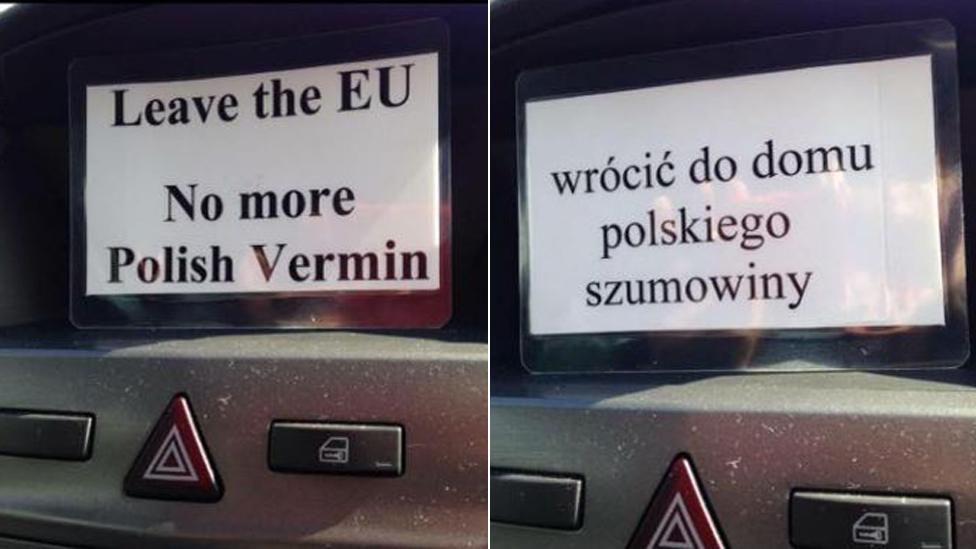Rise in hate crime in England and Wales
- Published
A man with his face disguised who claims to have attacked EU immigrants
The number of hate crimes in England and Wales has increased by 29%, according to Home Office statistics.
There were 80,393 offences in 2016-17, compared with 62,518 in 2015-16 - the largest increase since the Home Office began recording figures in 2011-12.
The biggest rise was in disability and transgender hate crimes, but this was due to better crime recording and more people coming forward, the report said, external.
It also noted a spike in hate crime around the time of the EU referendum.
There were also rises after the Westminster Bridge, Manchester Arena and London Bridge attacks this year.
Home Secretary Amber Rudd said there was "absolutely no place for hate crime in our society" and said the rise after 2017's terror attacks were "undoubtedly concerning".
The Home Office report said: "The increase over the last year is thought to reflect both a genuine rise in hate crime around the time of the EU referendum and following the Westminster Bridge terrorist attack, as well as ongoing improvements in crime reporting by police."
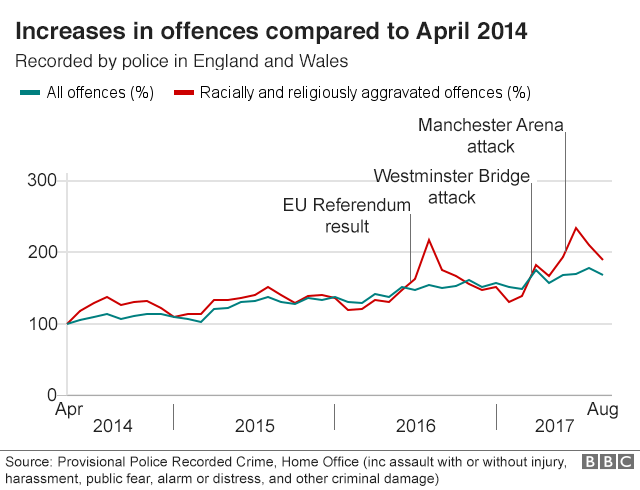
Disability or transgender hate crimes increased by 53% and 45% respectively, but the majority of hate crimes were racially motivated.
Regarding disability, transgender and sexual orientation hate crimes, the report said the rise "suggests that the increases are due to the police improving their identification and recording of hate crime offences and more people coming forward to report these crimes - rather than a genuine increase".
In 2016-17:
62,685 (78%) were race hate crimes
9,157 (11%) were sexual orientation hate crimes
5,949 (7%) were religious hate crimes
5,558 (7%) were disability hate crimes
1,248 (2%) were transgender hate crimes
Some crimes were recorded as having more than one motivating factor.
Ms Rudd said she was "heartened" more victims were coming forward and police recording of crime was improving, but "no-one in Britain should have to suffer violent prejudice".
Shadow home secretary Diane Abbott said the rise was "unacceptable".
"The Tories have made great claims about tackling burning injustices," the Labour MP said.
"But they are clearly not tackling the great injustice of being attacked simply because of your religion, your sexuality, the colour of your skin or your disability."

'Report, no matter what'
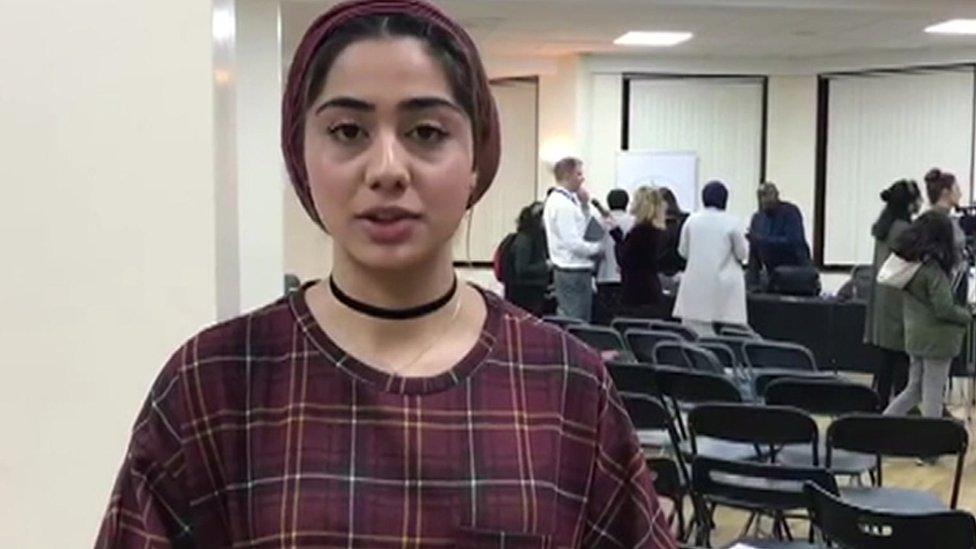
Zainab Talat Mir, a student at Goldsmith's University in London, was verbally harassed on the Tube.
"A lady stood up, she pointed at me and she said "you're the reason our country is terrorised," and she just got off the train.
"She did it when the doors were open, she ran off the train."
Ms Mir said she was so upset she did not go to university, instead returning home to tell her father what had happened.
He "was quite adamant" that she report it, to organisation Tell MAMA.
"They were quite good, they asked me details of what she looked like and what she was wearing. They then reported it to the police.
"But then I got a letter a couple of weeks later, telling me that there was no CCTV."
Ms Mir said the lack of action "put me off a bit on future reports. I was wondering whether I would want to report anything - if it did happen to me - again."
But she said that, as a "quite stubborn" person, she still would.
"I feel that if you report something, even if it's not taken account of, they still see something, they still see the numbers.
"I really think it's important for us to report, no matter what."

Mustafa Field, the director of the Faiths Forum for London group, which organised a vigil after the Westminster attack, said: "We must continue to encourage all those affected by hate crimes to speak out, and in doing so send a clear message that hate and prejudice can have absolutely no place in modern Britain.
"Victims need to know that their voices will be heard and that they will receive both justice and the support they need.
"Perpetrators need to know that such offences will not be tolerated in our communities, and that they will be dealt with under the full force of the law."

Analysis
By June Kelly, BBC home affairs correspondent
The hate crime figures were expected to go up, but the size of the increase is unexpected.
The Home Office is pointing to better police recording as one of the reasons for the rise.
But the EU referendum result and spate of terror attacks show how both politics and the security situation play a role in this most personal of crimes.
While race hate is behind the bulk of the offences, there has been a rise in all types of hate crime - abuse and attacks directed towards those with disabilities have gone up by more than 50%.
Police and prosecutors will be pleased that more complainants are coming forward, but these figures only paint a partial picture.
The Director of Public Prosecutions, Alison Saunders, has acknowledged that hate crime generally is under-reported.

What is hate crime?
A hate crime is defined as "any criminal offence which is perceived, by the victim or any other person, to be motivated by a hostility or prejudice" based on one of five categories: religion, faith or belief; race, ethnicity or nationality; sexual orientation; disability; or gender identity.
- Published15 October 2017
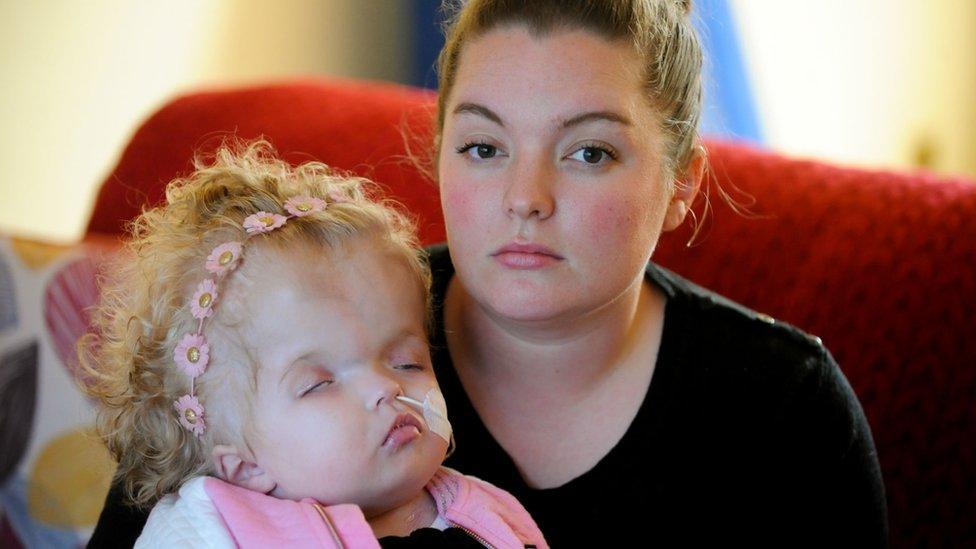
- Published21 August 2017

- Published10 August 2017
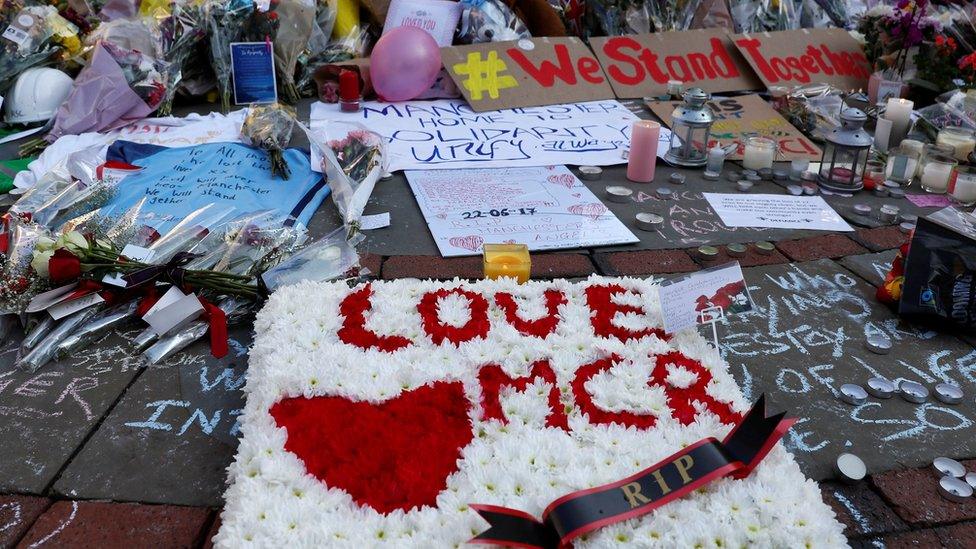
- Published27 May 2017
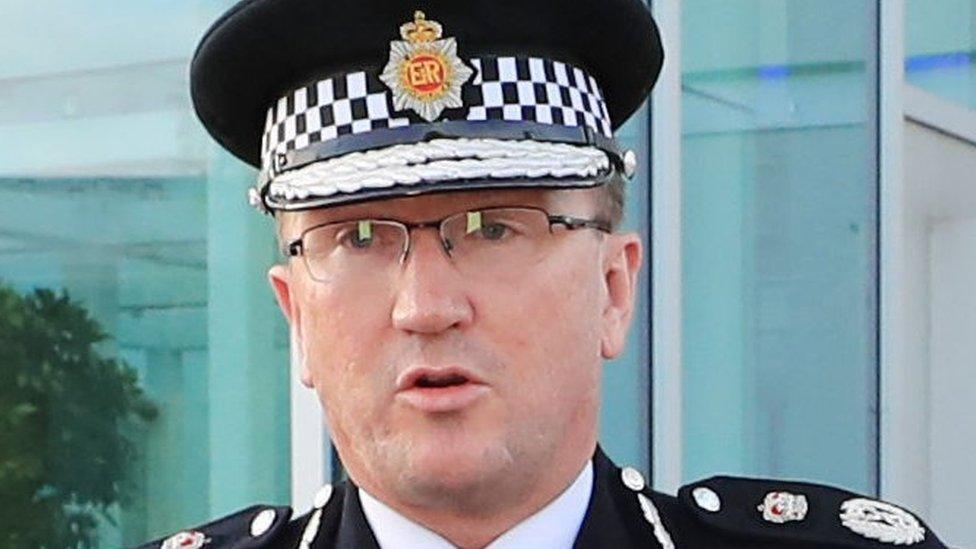
- Published13 October 2016
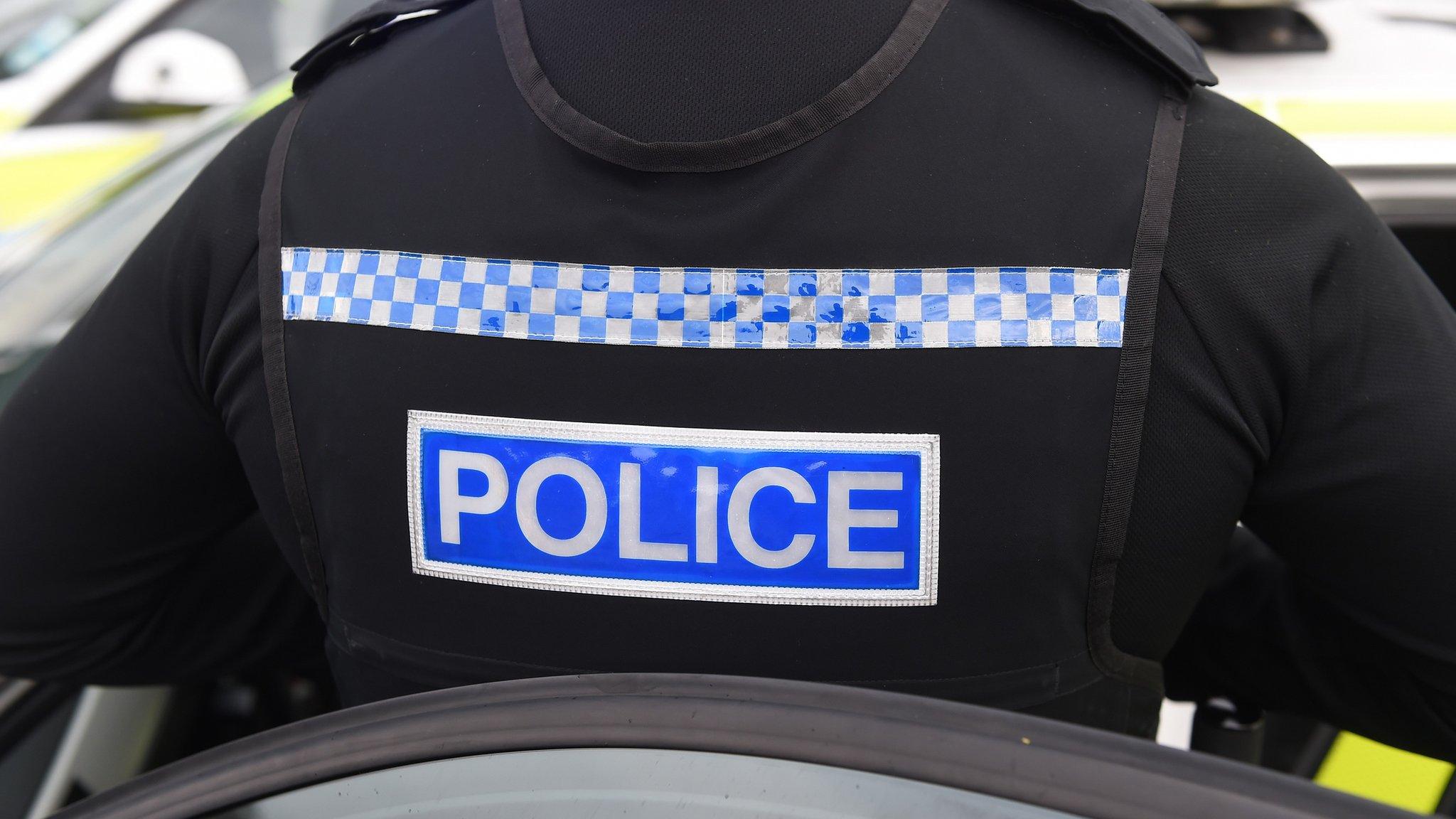
- Published8 July 2016
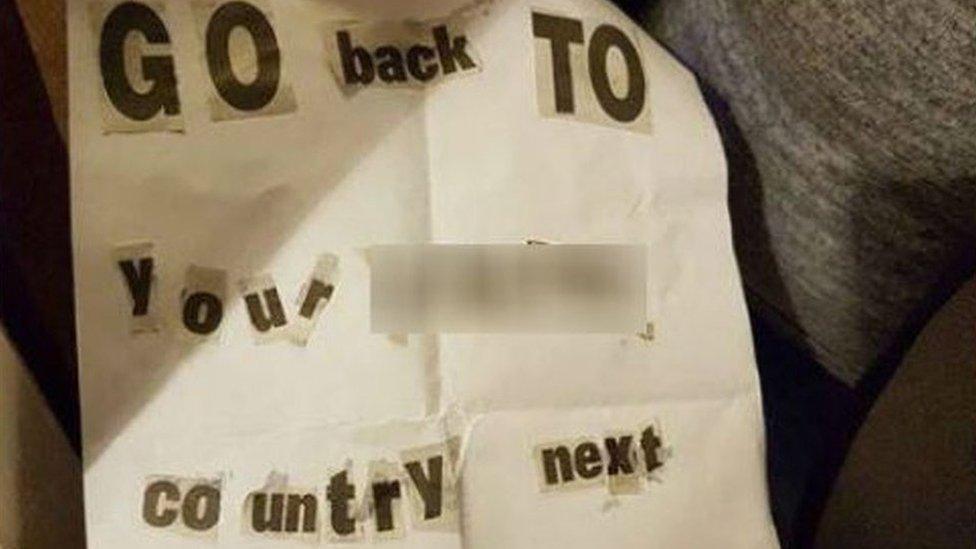
- Published27 June 2016
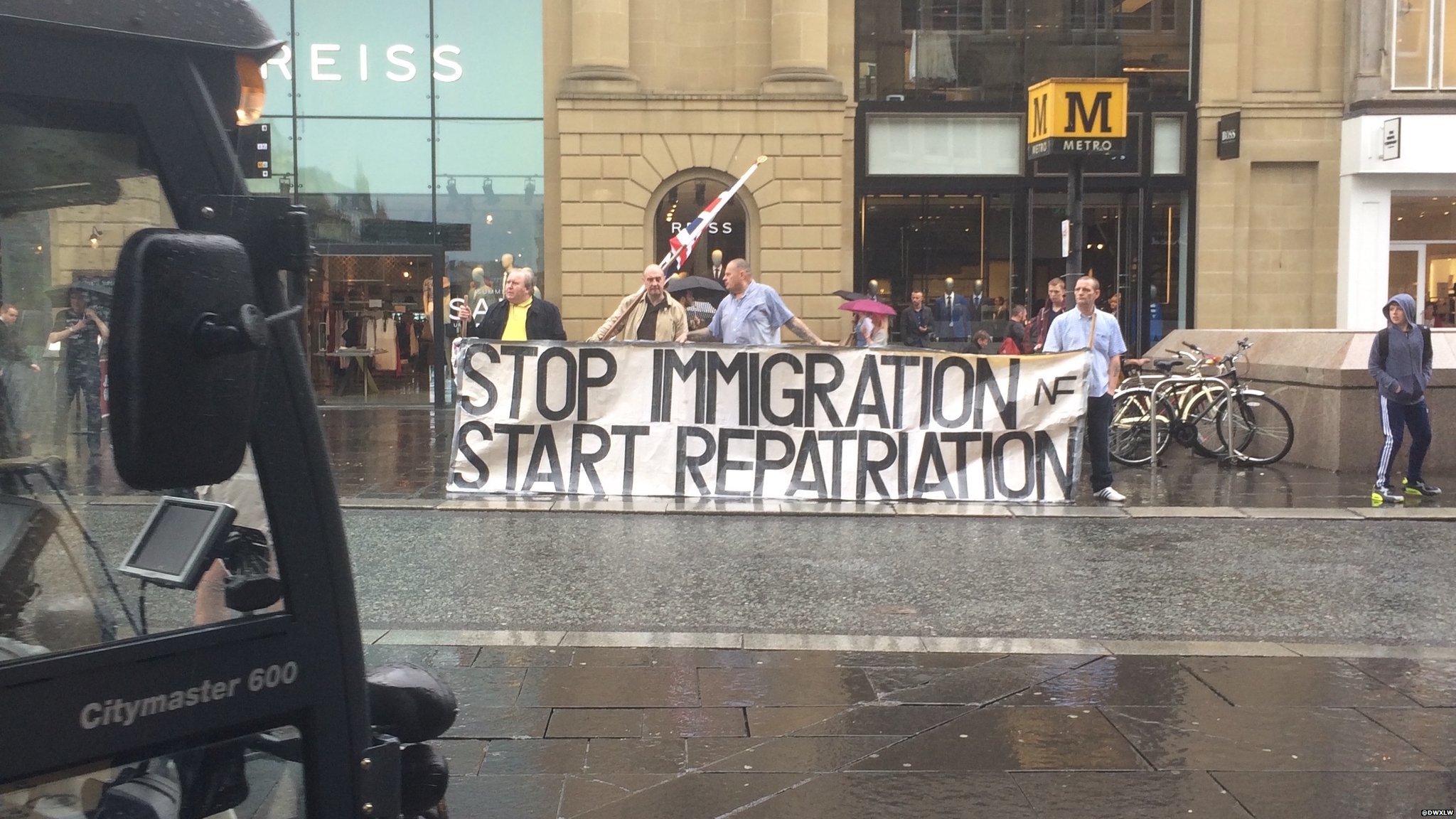
- Published26 June 2016
